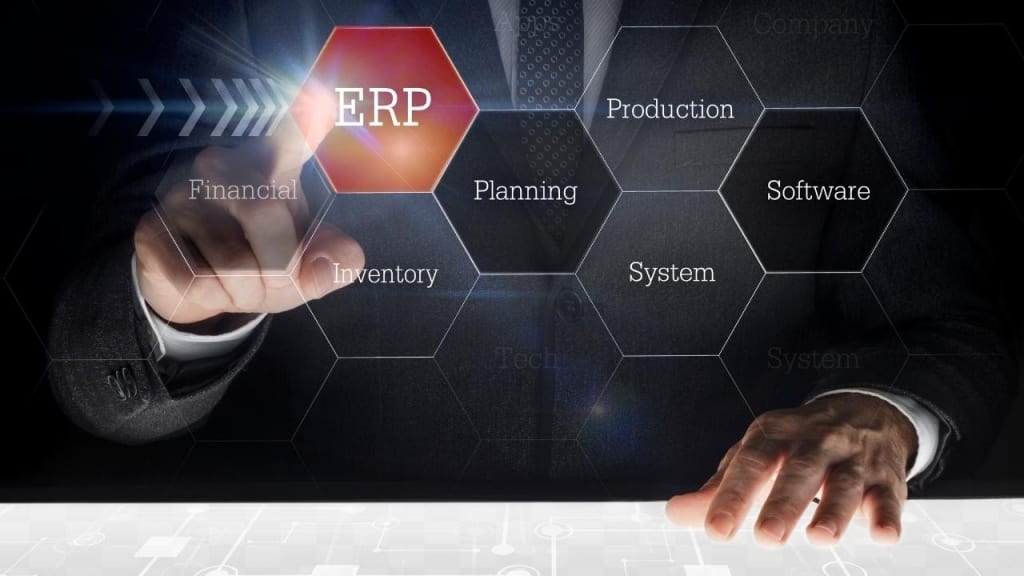ERP Software Trends for Business Leaders
Our article outlines ERP trends, including cloud solutions, AI integration, mobile access, and cybersecurity, offering valuable insights for business leaders to optimize operations.

Introduction:
In the ever-evolving landscape of contemporary business, the pursuit of success necessitates a profound understanding of the latest trends. Enterprise Resource Planning (ERP) software stands as a linchpin in achieving operational excellence and delivering invaluable insights to business leaders. This article delves deep into the pivotal ERP software trends that are shaping the current business terrain, equipping leaders with an extensive knowledge base to optimize their processes and make well-informed decisions.
1. Cloud-Based ERP Solutions:
The transformative shift towards cloud-based ERP solutions is fundamentally reshaping the operational paradigms of businesses across industries. The allure of flexibility, scalability, and accessibility has catapulted the widespread adoption of these solutions. In an era where real-time data access, seamless collaboration, and adaptability to market changes are paramount, businesses are increasingly turning to cloud solutions. The ability to swiftly adjust to dynamic market conditions and facilitate cohesive collaboration among remote teams is a driving force behind the soaring popularity of cloud-based ERP systems.
2. AI Integration:
The symbiotic integration of artificial intelligence (AI) into ERP systems is a catalyst for a paradigm shift in automation, predictive analytics, and decision-making processes. Within ERP solutions, machine learning algorithms are leveraging data to provide actionable insights, optimizing existing processes and pinpointing areas ripe for improvement. As the trajectory of AI technology continues to ascend, ERP systems are evolving into sophisticated tools capable of interpreting intricate data sets. This evolution empowers business leaders with nuanced and actionable intelligence, thereby elevating their strategic decision-making capabilities to unprecedented heights.
3. Mobile ERP Accessibility:
The seismic shift towards remote work has underscored the indispensability of mobile accessibility within ERP systems. Business leaders can now harness the power of real-time data, approve workflows, and monitor Key Performance Indicators (KPIs) directly from their mobile devices. This not only expedites decision-making but also ensures that leaders remain agile in responding to the ever-shifting sands of the market. The evolution of mobile ERP solutions underscores the industry's commitment to providing tools that seamlessly align with the evolving nature of work.
4. Integration with Emerging Technologies:
ERP systems are experiencing a symbiotic relationship with cutting-edge technologies such as the Internet of Things (IoT), blockchain, and augmented reality. These integrations serve as a catalyst for enhancing data accuracy, supply chain visibility, and overall business efficiency. For example, the deployment of IoT sensors in manufacturing processes furnishes real-time data, resulting in marked improvements in production planning and resource allocation.
5. Focus on User Experience (UX):
Modern ERP solutions have shifted their emphasis towards an unwavering commitment to user experience (UX), prioritizing intuitive interfaces and user-friendly features. This strategic shift aims to expedite user adoption and bolster productivity across various departments. By refining the user experience, businesses ensure that employees can effortlessly navigate and unlock the full potential of the ERP system, contributing significantly to overall operational efficiency.
6. Enhanced Cybersecurity Measures:
In an era where ERP systems serve as central repositories for sensitive data, vendors are intensifying their focus on incorporating advanced cybersecurity measures. Robust encryption techniques, multi-factor authentication, and proactive monitoring have become integral components of ERP solutions. These measures are indispensable for fortifying the security of business-critical information in an interconnected and digitized business landscape fraught with evolving cyber threats.
Conclusion:
In the dynamic crucible of modern business, staying abreast of ERP trends is not merely advantageous but essential for business leaders aiming to optimize their operations and gain a formidable competitive edge. Embracing cloud solutions, AI integration, mobile accessibility, emerging technology integrations, UX enhancements, and robust cybersecurity measures positions businesses to unlock the full potential of their ERP systems. By staying attuned to these trends, leaders ensure that their organizations are not just resilient to today's challenges but also well-prepared for the unpredictable future that lies ahead. As businesses navigate this ever-evolving landscape, the integration of these trends becomes not only a strategic advantage but a cornerstone for sustained success in an increasingly complex and competitive business environment. Continuously monitoring and adapting to these trends will be the catalyst for perpetual innovation and resilience in the face of the dynamic business ecosystem.





Comments
There are no comments for this story
Be the first to respond and start the conversation.